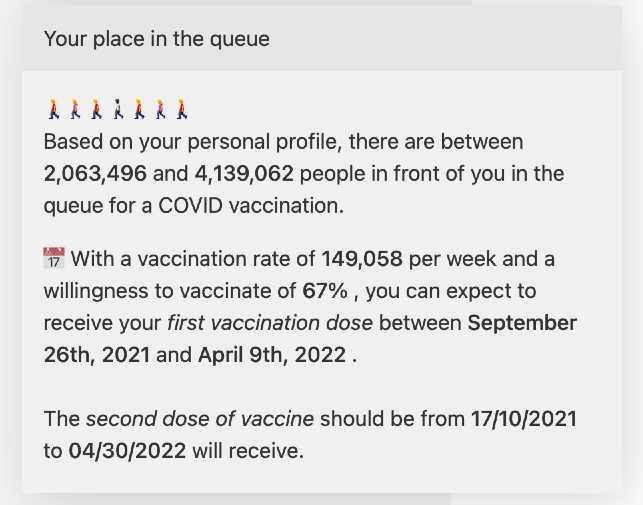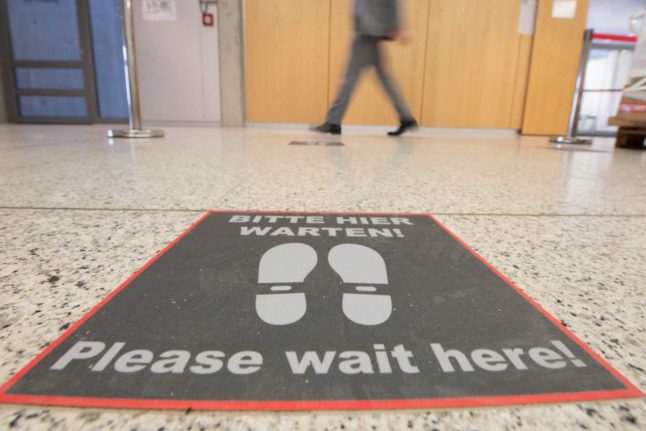From health authorities to members of the general public, getting a precise date on when you will be vaccinated seems almost impossible.
While the Swiss government has promised everyone will be vaccinated by July, this date seems more and more unlikely the more time that passes.
A new tool developed to forecast when people will be vaccinated depending on personal characteristics such as age and health status has shed some light on when Swiss residents will get their jab.
And unfortunately for most of us, at current vaccination rates the news isn’t good.
What is the tool?
The tool has been developed for the Swiss vaccination system by a team from the University of Vienna.
The team, made up of researchers Bogna Szyk, Philip Maus and Salam Moubarak, developed a tool to see how long vaccination would take in the United Kingdom.
15 million hits later, and they’ve tailored it to several countries including Switzerland.
“It all started when we launched such a computer for Great Britain in December,” said Szyk.
“Since then we have had 15 million visitors to the website. That showed us how important this topic is for everyone.”
How does it work?
The tool feeds in all the official information provided by the Swiss government about vaccine predictions, priorities and the predicted rollout.
You feed in information about your health status, job, age and other personal characteristics.
By doing this, the tool can provide an accurate date on which you’re likely to get vaccinated – while also showing you your place in the queue.
In Switzerland, the tool has two options. One lets you see your date at the government’s predicted vaccination rollout – and the other is based on current figures.
“We make two different invoices for Switzerland,” Szyk told Swiss news outlet 20 Minutes.
“On the one hand, you can see how long it would take before a person can be vaccinated according to the FOPH vaccination schedule. Secondly, it shows how long it would go with the current vaccination rate.”
What is the difference between the two?
The difference is unfortunately huge. Using government predictions, a person in their 20s with no adverse health ailments could expect a vaccination between May 5th and June 24th (first dose).
At the current pace however, the first dose could arrive as late as April 4th, 2022 – more than a year from now.

Is it only for Switzerland?
The developers have also built in the underlying data of 30 other countries so that you can see a comparison.
Other functionality is possible – including how many lives you can save by staying at home or wearing a mask.
The tool is available at the following link in German and in French.



 Please whitelist us to continue reading.
Please whitelist us to continue reading.
Member comments